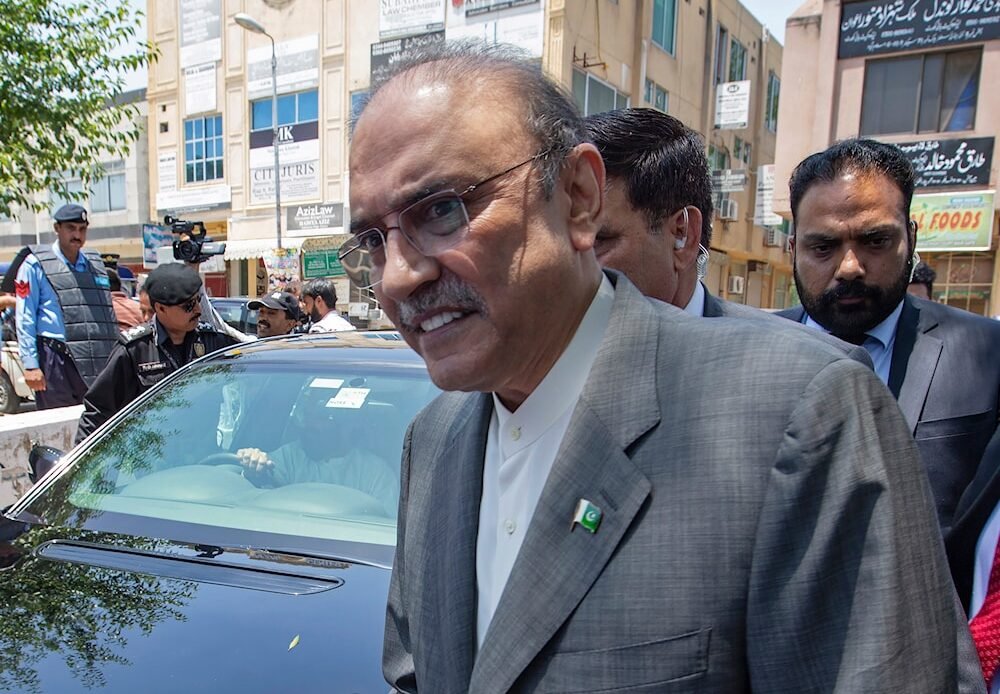Pakistani lawmakers elected Asif Ali Zardari as the country’s 14th president in a closely watched and hard-fought election on Saturday.
Asif Ali Zardari, 68, the co-chairman of the center-left Pakistan People’s Party (PPP) and widower of the late two-time Prime Minister Benazir Bhutto, clinched victory as the candidate of the ruling coalition.
He faced formidable competition from Mahmood Khan Achakzai, a seasoned politician representing the southwestern Balochistan province and a candidate of the opposition Sunni Ittehad Council, a religiopolitical group that has become the new political home for lawmakers associated with the incarcerated ex-Prime Minister Imran Khan’s Pakistan Tehreek-e-Insaf (PTI) party.
The voting process commenced at 10 a.m. local time and unfolded across the nation’s political landscape until 4 p.m. Zardari’s victory signifies a return to the highest, albeit symbolic, constitutional office, as he previously served as the president from 2008 to 2013 during his own party’s tenure.
Notably, some smaller political parties, such as Jamiat Ulema-e-Islam Fazal (JUI-F) and Jamaat-e-Islami, chose to boycott the election. Consequently, no Member of Parliament from these parties participated in the voting.
Fraudulent election?
Asad Qaiser, a prominent leader of the Pakistan Tehreek-e-Insaf (PTI), declared on Tuesday that his party intends to stage street protests in response to what they perceive as the illegitimate appropriation of their electoral mandate during the general elections held on February 8, as reported by ARY News.
Addressing the media in Islamabad, former National Assembly speaker Asad Qaiser stated that the PTI aims to bring together various political entities to initiate a campaign against what they describe as “rigged” elections.
“Our peaceful movement will be launched in all four provinces,” he said. “We will not back down as our war is not for our politics but for the nation.”
Expressing regret, the legislator bemoaned the alleged misappropriation of “180 seats” from the Ittehad Council (SIC), which currently houses lawmakers supported by the PTI.
“180 seats elected seats and reserved seats for women were taken from SIC. A fake prime minister is sitting on the seat right now,” he highlighted.
Qaiser expressed his apprehension about the country’s survival, stating, “I am concerned about the future of this nation,” and called for the establishment of a judicial commission to investigate the events of May 9.
In the meantime, the PTI has issued a call for nationwide demonstrations on March 10 (Sunday) to protest against the purported electoral irregularities in the general elections held on February 8.
Leading up to the polling day, the Pakistan Tehreek-e-Insaf (PTI) faced a crackdown that limited canvassing and compelled candidates to stand as independents. The party’s campaign primarily shifted to the online realm, where social media activities were subjected to censorship through various nationwide blackouts affecting X, as well as platforms like Instagram, TikTok, Facebook, and YouTube.
read more: China wants Russia at Ukraine peace talks – media
source: alMayadeen



